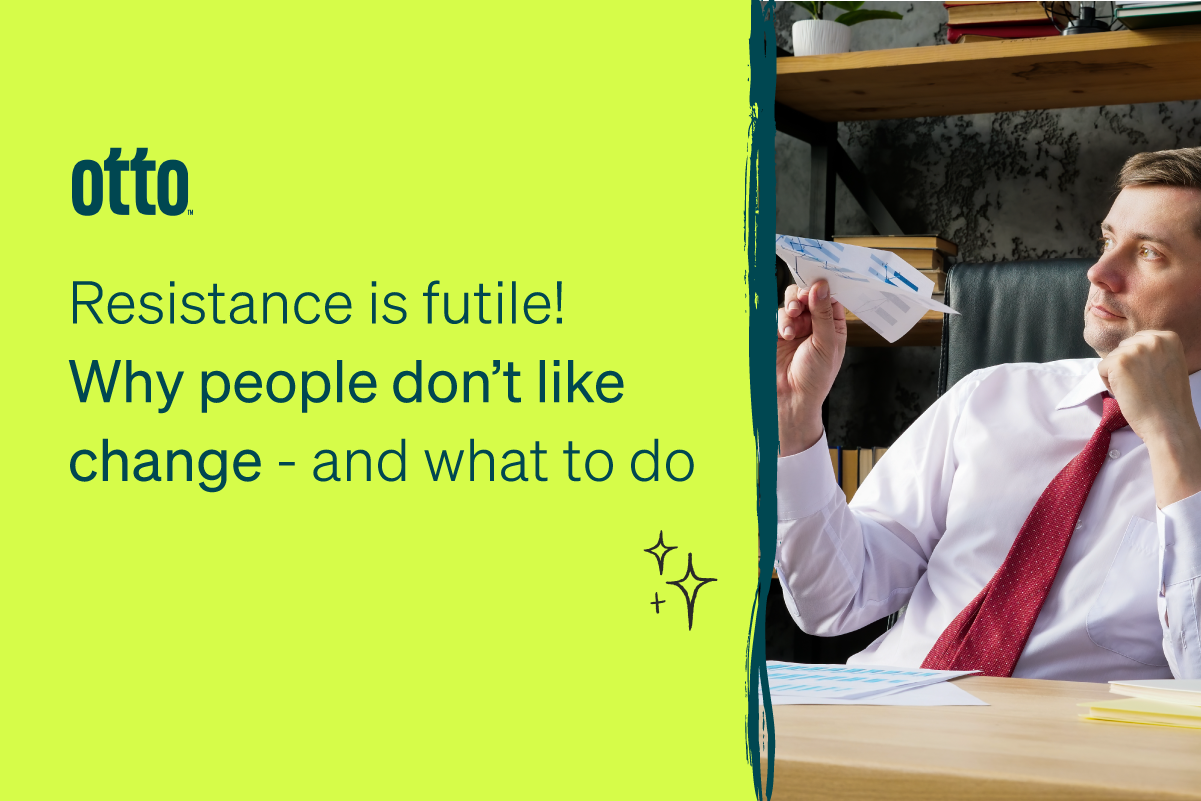Things feel like they are changing in the workplace at a faster pace than ever. AI and automation are huge changes. So is hybrid and remote working. So is digitisation. And all of these new technologies mean changes in workplace organisation, roles, and requirements. It’s a lot to take in – and organisations are experiencing resistance. But why do we resist change? And how can we approach change management techniques to make it easier?
As an MSP and tech strategy provider, change is a big part of our industry. At the same time, we’re a human-focused tech company, which means we put a lot of focus on helping people make the leap. Here are some insights we’ve gathered through our own evolution as well as through our processes that help organisations move forward.
#1 – Change feels like a loss of control
Change is something that doesn’t just happen – it happens to you . It’s unsettling to feel like the rug has been pulled out from under you. Your territory and knowledge which feels valuable now feel under threat. As much as we are intellectually aware that we can’t control things, these types of reminders make us feel a loss of ownership and autonomy.
The fix: People need to be involved in changes. Even if it’s something unexpected, they should have open lines where they can communicate concerns without judgement, get involved in planning a solution, and have as many choices as are viable and appropriate.
#2 – It feels like a surprise
There are a lot of people who don’t even like surprise parties, so don’t be taken aback when we say that changes in the workplace feel uncomfortable and unnerving. We’re creatures of habit after all, and even those of us involved in industries where change is normal and rapid have to work hard at our ability to take it in our stride.
The fix: Whenever possible, don’t announce big changes all at once. Instead, gradually introduce concepts and changes in bite-size portions, helping people come around to your ideas. Spend time reassuring people that their place is secure and have support structures like training ready to roll.
#3 – You feel out-of-touch
Change is a move away from what is familiar and what you know, a change in direction and strategy. When a big change occurs, it can make people feel like what they did previously wasn’t good enough or that they were wrong, destabilising their sense of value and expertise in the organisation. They may feel the need to defend their old ways as a result or feel uncertain about their future.
The fix: Take the approach that what you did have was good – but the world has changed and the organisation has to move forward. You couldn’t have predicted this new technology or whatever it is the organisation is reacting to, but it needs to be accommodated to keep the competitive streak going that the old strategy or solution enabled.
#4 – It means more work
When you’ve spent years learning a skill and gained valuable experience using it only to have something else disrupt or replace that, it can feel like you’re back at square one. That means you have to put in loads of hard work all over again just to get competent in the new system – and who knows? That may be replaced again down the line!
The fix: It is absolutely essential to make continuous learning a pillar of your workplace culture. Just like taking on a new client or a new project, learning new skills needs to be a normal part of work life. And it should be rewarded. Upskilling or reskilling is hard work and it’s essential work, so give people dedicated time for training, reward them with perks, and make an effort to ensure it doesn’t encroach too much on their work-life balance.
An IT partner who can help you manage change
Otto is more than the top MSP in Melbourne – we’re a company that focuses on both tech AND people. From IT consulting services and vCIO services to cloud migration specialists, AI and automation teams, and even IT support, we’re here for your people first.
We firmly believe that tech and employees have to be a team to get the job done right. That’s why we’ll help you plan your tech investments, develop your rollout strategy, and maintain your solutions. We’ll also train your people, so they feel comfortable, secure, and productive in this changing environment.
Let us help you make change for all the right reasons, and in all the right ways.



